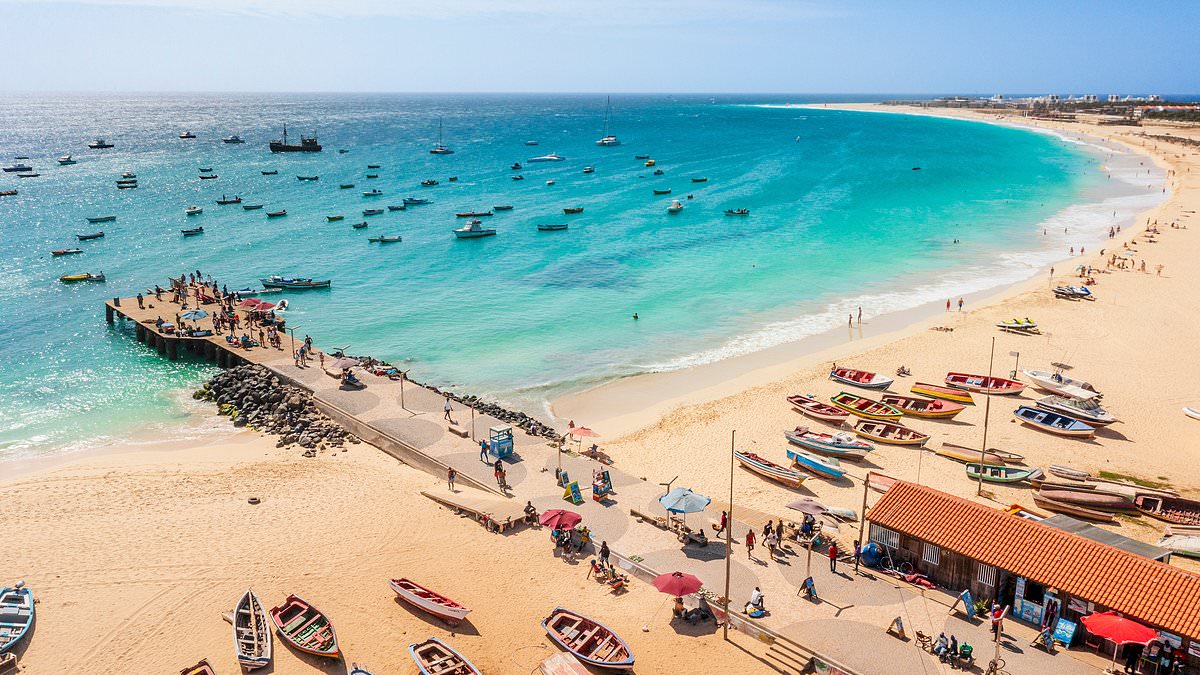Title: Caribbean Paradise: Island Life at 30°C Year-Round
Editor's Note: Discover the allure of year-round tropical bliss in the African Caribbean. This article delves into the unique climate, lifestyle, and opportunities of these idyllic islands.
Why It Matters: The allure of perpetual summer is undeniable. This article explores the African Caribbean islands boasting average temperatures of 30°C throughout the year, examining the economic, environmental, and social factors that shape life in this tropical paradise. It also investigates sustainable tourism practices and the preservation of these unique ecosystems. Keywords include: African Caribbean islands, tropical climate, year-round sunshine, island life, sustainable tourism, Caribbean real estate, Caribbean culture, tropical weather, island vacation.
Key Takeaways:
| Aspect | Description |
|---|---|
| Average Temperature | Consistently around 30°C (86°F) |
| Rainfall | Varies seasonally, influencing lush vegetation and biodiversity. |
| Tourism | Significant economic driver, requiring sustainable practices. |
| Culture | Rich blend of African, European, and indigenous influences. |
| Real Estate | Growing market, attracting both investors and retirees seeking tropical living. |
African Caribbean Island: 30°C Year-Round
Introduction: The African Caribbean islands present a unique opportunity to experience consistent tropical warmth. This consistent climate significantly impacts the lifestyle, economy, and environment of these idyllic locations. Understanding these key aspects is crucial for appreciating the islands' unique character.
Key Aspects:
- Climate: The consistent 30°C temperature is moderated by trade winds, resulting in a generally comfortable climate even during the warmest months.
- Economy: Tourism plays a major role, but diversification into agriculture and other sectors is crucial for sustainable development.
- Culture: A rich tapestry of African, European, and indigenous traditions influences everything from music and food to art and architecture.
- Environment: The islands boast incredible biodiversity, but this delicate ecosystem requires careful conservation efforts.
- Real Estate: The appeal of year-round warmth drives significant investment in the region's property market.
Subheading: Climate and its Impact
Introduction: The consistent 30°C temperature is a defining feature of these islands, influencing the local flora, fauna, and the lifestyle of the inhabitants.
Facets:
- Role of Trade Winds: These winds moderate the temperature, preventing extreme heat and providing a cooling breeze.
- Rainfall Patterns: Seasonal variations in rainfall create lush vegetation and support diverse ecosystems. The wet and dry seasons shape agricultural practices.
- Risks: The risk of extreme weather events, such as hurricanes, is a concern.
- Mitigation: Improved infrastructure and disaster preparedness measures are essential for mitigating these risks.
- Impacts: The climate dictates the type of agriculture possible and shapes the clothing, architecture, and social activities of the population.
Summary: The consistent climate is fundamental to the unique character and development of the African Caribbean islands, influencing every aspect of life on these islands.
Subheading: Sustainable Tourism and Economic Growth
Introduction: Tourism is a cornerstone of the island economies, but sustainable practices are vital for long-term prosperity and environmental protection.
Further Analysis: The delicate balance between economic growth and environmental preservation requires responsible tourism strategies. Diversifying the economy beyond tourism is key to reducing dependence on this single sector.
Closing: Sustainable tourism initiatives, such as eco-lodges and community-based tourism projects, are becoming increasingly important. Addressing the challenges of balancing economic growth with environmental protection is crucial for the future of these islands.
Information Table:
| Island Group | Notable Features | Tourism Focus | Key Industries | Environmental Concerns |
|---|---|---|---|---|
| (Example: Island X) | Volcanic landscapes, pristine beaches | Luxury resorts, diving | Agriculture, fishing | Coral reef degradation |
| (Example: Island Y) | Lush rainforests, diverse wildlife | Ecotourism, hiking | Agriculture, forestry | Deforestation |
| (Example: Island Z) | Historic architecture, vibrant culture | Cultural tourism | Crafts, tourism | Coastal erosion |
FAQ
Introduction: This section addresses common questions about living and visiting these tropical islands.
Questions:
- Q: What is the best time to visit? A: The best time to visit depends on rainfall patterns; research specific islands for optimal travel times.
- Q: What is the cost of living? A: Costs vary significantly depending on the island and lifestyle.
- Q: What are the visa requirements? A: Visa requirements vary depending on nationality; check with the relevant embassy or consulate.
- Q: What language is spoken? A: English is widely spoken, but local dialects and languages may also be prevalent.
- Q: Is it safe? A: Like any other destination, safety precautions are recommended. Research the specific island and follow local guidelines.
- Q: What are the healthcare facilities like? A: Healthcare varies; check the availability of medical facilities and insurance options.
Summary: The FAQ section highlights the importance of researching specific islands and understanding local conditions before visiting or relocating.
Tips for Visiting the African Caribbean Islands
Introduction: Planning a trip to these tropical islands requires some preparation. These tips will help you make the most of your visit.
Tips:
- Pack light, breathable clothing.
- Protect yourself from the sun with sunscreen and a hat.
- Stay hydrated by drinking plenty of water.
- Research local customs and traditions.
- Learn a few basic phrases in the local language.
- Be aware of potential hazards, such as strong currents and wildlife.
- Book accommodation and flights in advance, especially during peak season.
- Respect the local environment and culture.
Summary: Careful planning and preparation will enhance the enjoyment of your visit to the African Caribbean islands.
Summary (Resumen): This article explored the unique allure of the African Caribbean islands, emphasizing their consistently warm climate, diverse cultures, and opportunities for sustainable tourism and economic growth. Understanding the interplay between climate, culture, and economy is key to appreciating these captivating destinations.
Closing Message (Mensaje Final): The African Caribbean islands offer a captivating blend of natural beauty and cultural richness. Embrace the opportunity to discover these tropical paradises, but do so responsibly, respecting the environment and supporting sustainable practices. Explore further and plan your escape to paradise!

